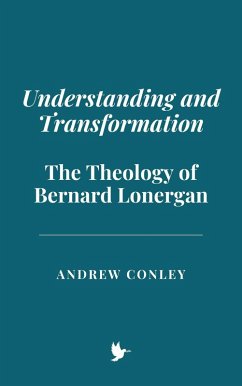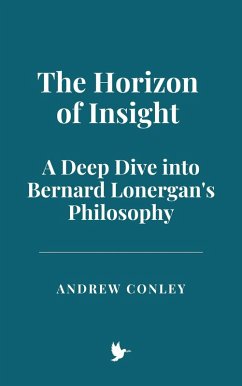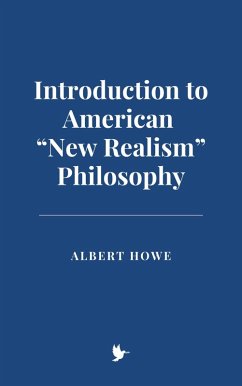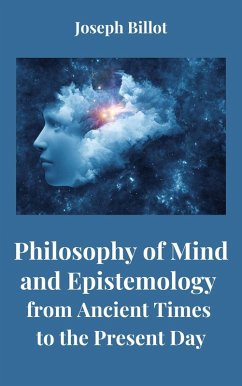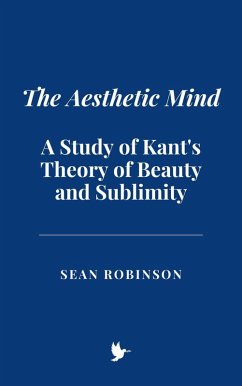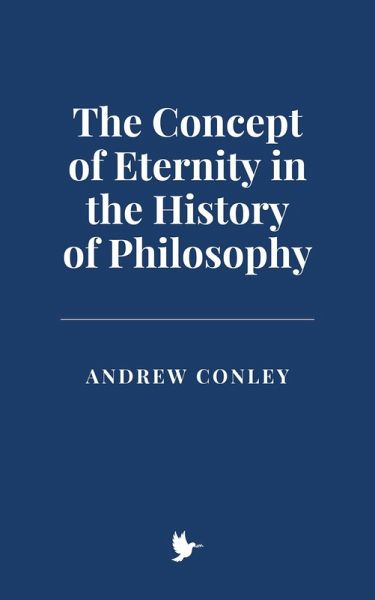
The Concept of Eternity in the History of Philosophy (eBook, ePUB)

PAYBACK Punkte
0 °P sammeln!
This book explores the profound and multifaceted concept of eternity, tracing its philosophical, religious, scientific, and cultural dimensions across history and into contemporary thought. Eternity, as a timeless and infinite reality, has been a central concern for humanity, reflecting our deepest aspirations, fears, and intellectual pursuits.From the metaphysical foundations of ancient Greece to the spiritual teachings of Eastern traditions, the interplay between the finite and the eternal has shaped ethical systems, cosmological frameworks, and artistic expressions. Eternity has been envisi...
This book explores the profound and multifaceted concept of eternity, tracing its philosophical, religious, scientific, and cultural dimensions across history and into contemporary thought. Eternity, as a timeless and infinite reality, has been a central concern for humanity, reflecting our deepest aspirations, fears, and intellectual pursuits.
From the metaphysical foundations of ancient Greece to the spiritual teachings of Eastern traditions, the interplay between the finite and the eternal has shaped ethical systems, cosmological frameworks, and artistic expressions. Eternity has been envisioned as both an unchanging ideal and a dynamic process, influencing the philosophical dichotomy between permanence and flux, as seen in the works of Plato, Aristotle, and Nietzsche. Religious traditions-from the Judeo-Christian and Islamic emphasis on eternal salvation to the Hindu and Buddhist focus on liberation from temporal cycles-offer diverse interpretations of eternity's implications for the soul and moral responsibility.
In the modern era, scientific advancements have redefined the boundaries of eternity, introducing new paradigms through theories of cosmic evolution, multiverse hypotheses, and quantum mechanics. Technology, artificial intelligence, and digital media have expanded the human imagination of eternity, creating opportunities for preserving knowledge, identity, and even consciousness. Yet, these innovations also raise ethical and existential questions, challenging traditional notions of mortality and the meaning of a life oriented toward the eternal.
Through a comprehensive analysis of primary sources, philosophical arguments, religious doctrines, scientific theories, and artistic expressions, this book illuminates the enduring quest to understand eternity. It invites readers to reflect on its implications for humanity's place in the cosmos, the moral weight of our choices, and the evolving relationship between time, space, and existence. Eternity emerges not as a static or singular concept but as a dynamic and expansive field, encompassing the mysteries of life, the universe, and the infinite.
From the metaphysical foundations of ancient Greece to the spiritual teachings of Eastern traditions, the interplay between the finite and the eternal has shaped ethical systems, cosmological frameworks, and artistic expressions. Eternity has been envisioned as both an unchanging ideal and a dynamic process, influencing the philosophical dichotomy between permanence and flux, as seen in the works of Plato, Aristotle, and Nietzsche. Religious traditions-from the Judeo-Christian and Islamic emphasis on eternal salvation to the Hindu and Buddhist focus on liberation from temporal cycles-offer diverse interpretations of eternity's implications for the soul and moral responsibility.
In the modern era, scientific advancements have redefined the boundaries of eternity, introducing new paradigms through theories of cosmic evolution, multiverse hypotheses, and quantum mechanics. Technology, artificial intelligence, and digital media have expanded the human imagination of eternity, creating opportunities for preserving knowledge, identity, and even consciousness. Yet, these innovations also raise ethical and existential questions, challenging traditional notions of mortality and the meaning of a life oriented toward the eternal.
Through a comprehensive analysis of primary sources, philosophical arguments, religious doctrines, scientific theories, and artistic expressions, this book illuminates the enduring quest to understand eternity. It invites readers to reflect on its implications for humanity's place in the cosmos, the moral weight of our choices, and the evolving relationship between time, space, and existence. Eternity emerges not as a static or singular concept but as a dynamic and expansive field, encompassing the mysteries of life, the universe, and the infinite.
Dieser Download kann aus rechtlichen Gründen nur mit Rechnungsadresse in A, B, CY, CZ, D, DK, EW, E, FIN, F, GR, H, IRL, I, LT, L, LR, M, NL, PL, P, R, S, SLO, SK ausgeliefert werden.







